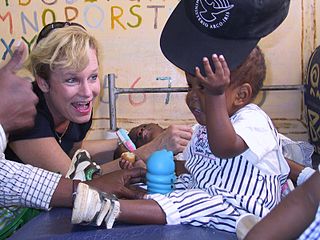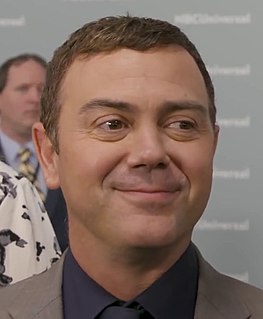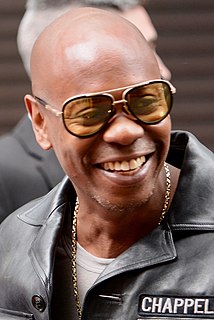A Quote by Drew Pinsky
We start with people who are motivated to get paid and be on TV, and we end up with people who have been transformed by the experience and go on to embrace sobriety. If they relapse, like most of my patients do, we continue to support and treat them. I'm thrilled that five out the eight [Celebrity Rehab cast members] showed up for after-care, and two more committed to coming back.
Related Quotes
A new breed of ministers is rising up who will not wear out for the gospel. They are so caught up in passion, unity, and fullness that they run out and say, “World, here I come!” If they go into places where they get shot at, they are thrilled. If they do not get shot at, they are thrilled. If the place they go is filthy, they are thrilled. If it is clean, they are thrilled. Jesus is the joy set before them. He is their exceedingly great reward.
I think the most important thing is the American people have lost trust and confidence in the people they have sent up to Congress as elected leaders. And I think that it is so important to reconnect to the people. And I think that the last election showed people weren't running back to the Republican Party. They did show that they weren't happy with the policies coming out of the Democrat Party. But they are trying to find individuals that will go up and be their voice, that will resemble them, that will take their cares and concerns to Washington, D.C.
I enjoy it all: performIng, doing TV, movies, comedy, drama, stand-up, animation voicework, singing, but you get that instant gratification from stand-up because it's your own commentary and you get to see the reaction from the audience that's right there in front of you. I also love coming up with characters and watching people embrace them and enjoy them.
The more people I meet, the more cultures I start to embrace, the more people I open myself up to - it's a growing process I'm excited about. But it's also a challenge for me, to be at this level and still be able to connect with somebody who's living that everyday life. At first it was something I struggled with, because everything was moving so fast. I didn't know how to digest it. The best thing I did was go back to the city of Compton, to touch the people who I grew up with and tell them the stories of the people I met around the world.
Once you start to ask patients about their priorities, you discover what they're living for. Once you uncover that, it helps you, as a doctor, decide what to fight for. And when we do that, we often end up identifying limits to the kind of care that people want. One's assumption is that these people are going to live shorter lives, but what we're doing is protecting quality of life. In doing so, you sometimes end up helping people live longer. Certainly, you help people live better days and with more purpose in their lives.
I believe that the major operating ethic in American society right now, the most universal want and need is to be on TV. I've been on TV. I could be on TV all the time if I wanted to. But most people will never get on TV. It has to be a real breakthrough for them. And trouble is, people will do almost anything to get on it. You know, confess to crimes they haven't committed. You don't exist unless you're on TV. Yeah, it's a validation process.
What I found most fun is just trying to get other people to crack up. That's always something that will help a movie and I've been lucky enough to have been able to work with some incredibly talented, collaborative comedy people in all of the stuff that I've been in. If you can get people laughing, cast or crew, you're going to have a good end product.
We've looked at sleep diaries of patients with insomnia, and they'll say that they don't sleep for one or two days. And the body actually has a natural function, after about the third day to start catching up and you get a little bit more sleep the third night. And that's usually what I tell my patients.
People realize that we're very good at sending people to war, but we're not good at taking care of them. And people are coming back from war now; years ago, they would have been killed, now they're wounded; and they're coming back alive and with post-traumatic stress. So, I think Americans are sensible enough to know we've got to figure out a way to take care of them.
You can choose, you can go one of two ways. You can be the person I probably admire more and say 'well I don't care and I'll continue not to bother to brush my hair.' Or you can be a weak-willed person like me and think 'oh I'd better get my act together. And maybe my mother was right and I do need to put my hair back and tidy myself up a bit.' So I did tidy myself up a bit. But I do often resent the amount of time that it takes to pull yourself together to go on TV, I really do. If I sound bitter, then that accurately reflects how I feel about the subject.
Let's just say my phone blew up when I came out on global television. The only people that knew were my immediate family members and my closest friends, maybe like three of them. So you can imagine how many texts and emails and Facebook messages that I got after coming out, most of which were very supportive from the LGBT community.
You start noticing that people are noticing how you look, and it is a profoundly alienating experience when it first happens, where you go on TV and you say something about some topic of the day, and on the Internet people are like, 'What was up with that shirt?' 'What was up with your hair?' And you think, 'Oh, that's kind of a bummer.'



































